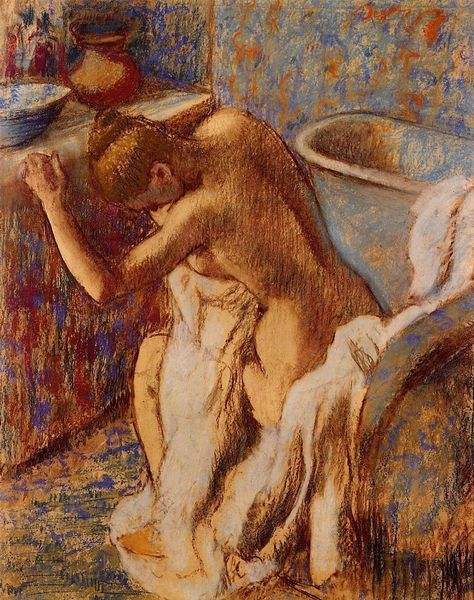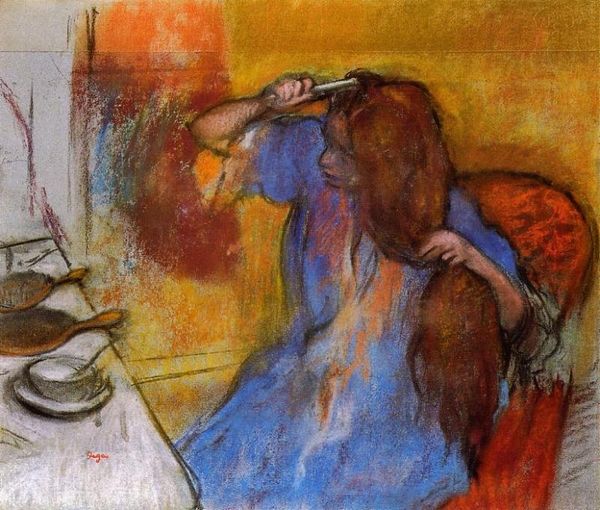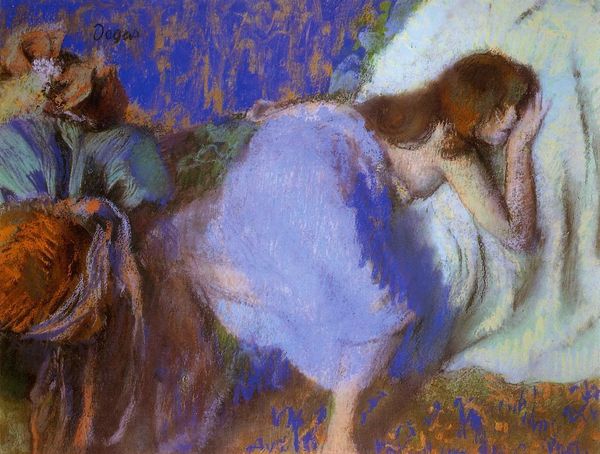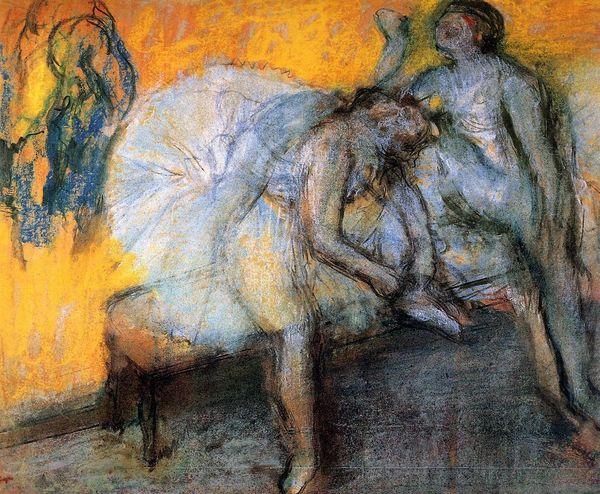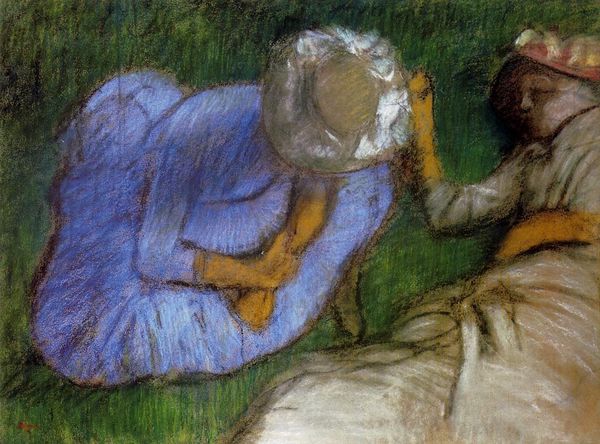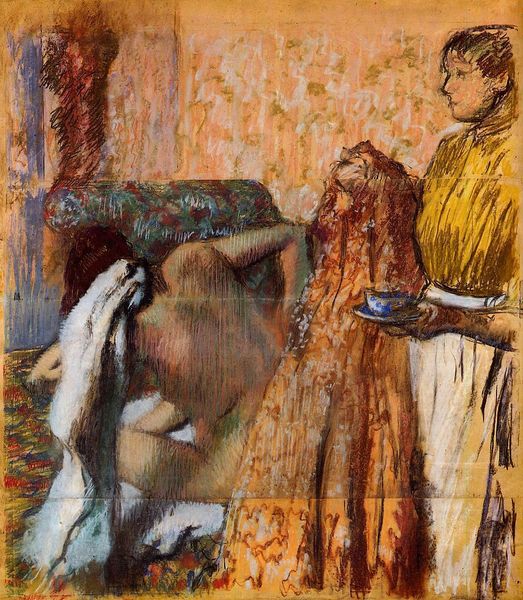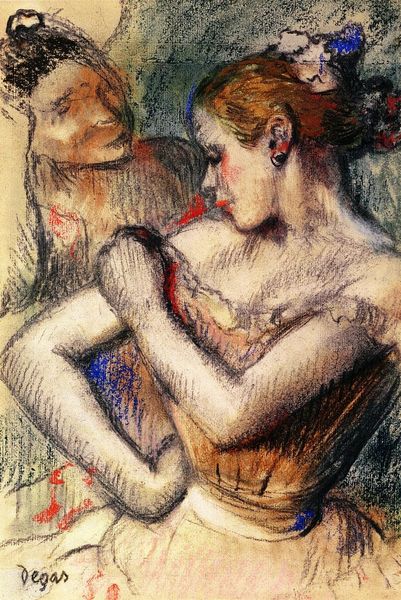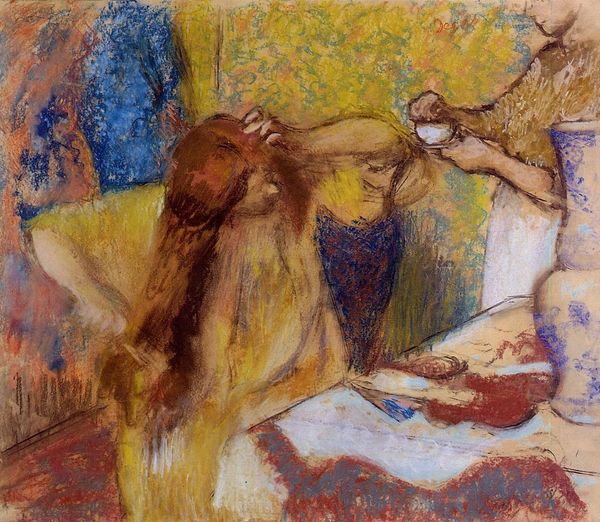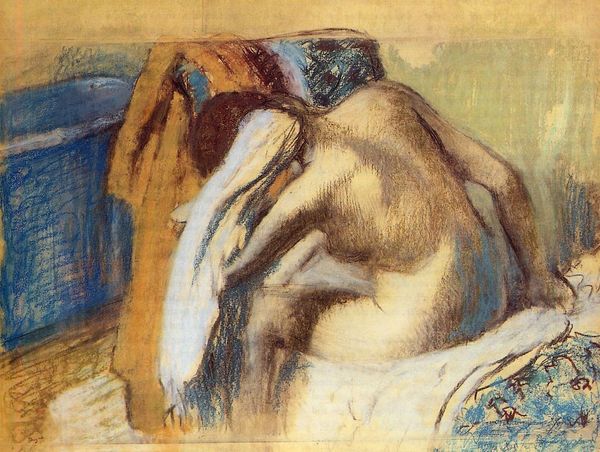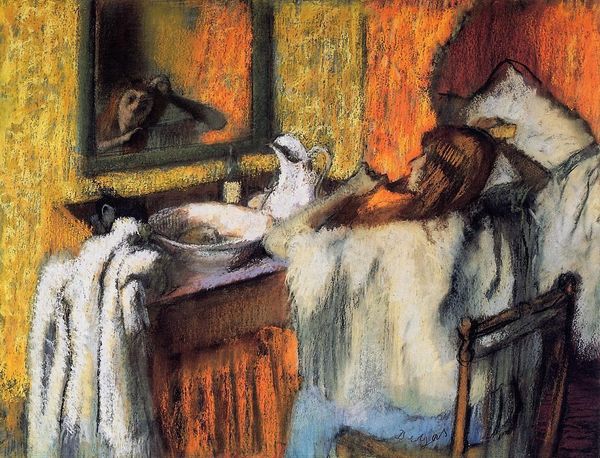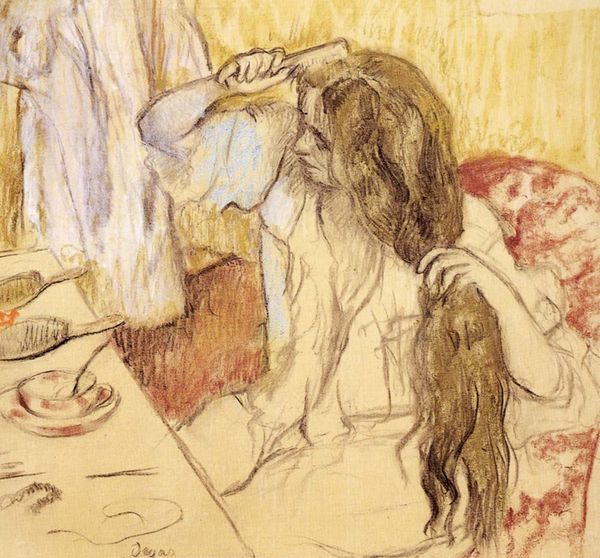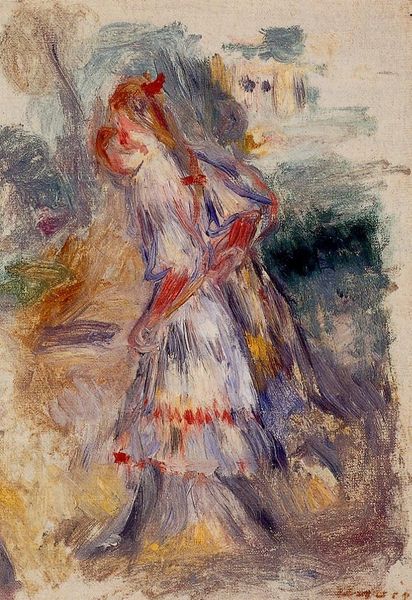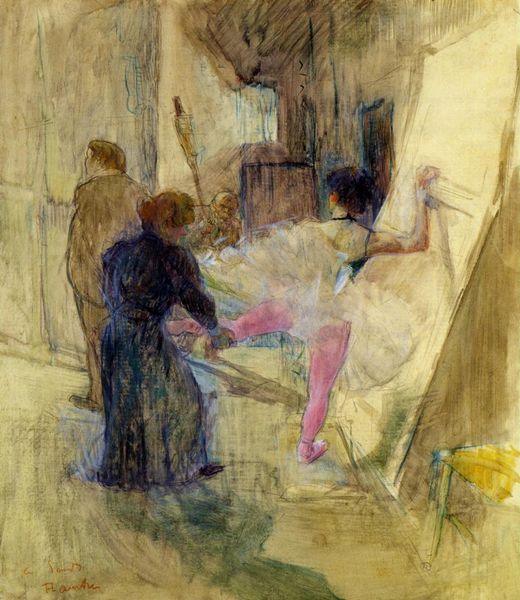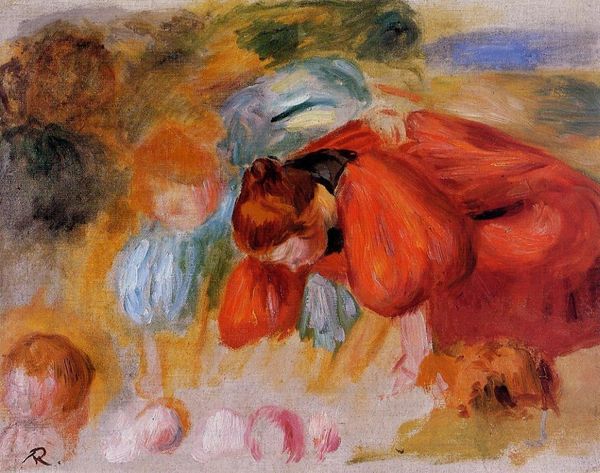
Copyright: Public domain
Edgar Degas created "Breakfast after Bathing" without providing us a date, using pastel on paper. Degas was a man of his time, situated within the late 19th century Parisian art scene. He often depicted women in intimate, domestic settings, a reflection of the era’s limited roles afforded to women in public life. Here, we see the unidealized female nude, a choice that challenges the romanticized portrayals common in academic art. But the image raises questions about the gaze - who is invited to look, and what does it mean to witness this private moment? The presence of the maid introduces a class dimension, suggesting a world where the wealthy woman's comfort is enabled by the labor of another. The positioning of the figures, with the bather foregrounded and the maid in the background, creates a layered narrative about the experience of women in the 19th century. It is in these quiet moments that the complexities of gender, class, and identity quietly unfold.
Comments
No comments
Be the first to comment and join the conversation on the ultimate creative platform.
